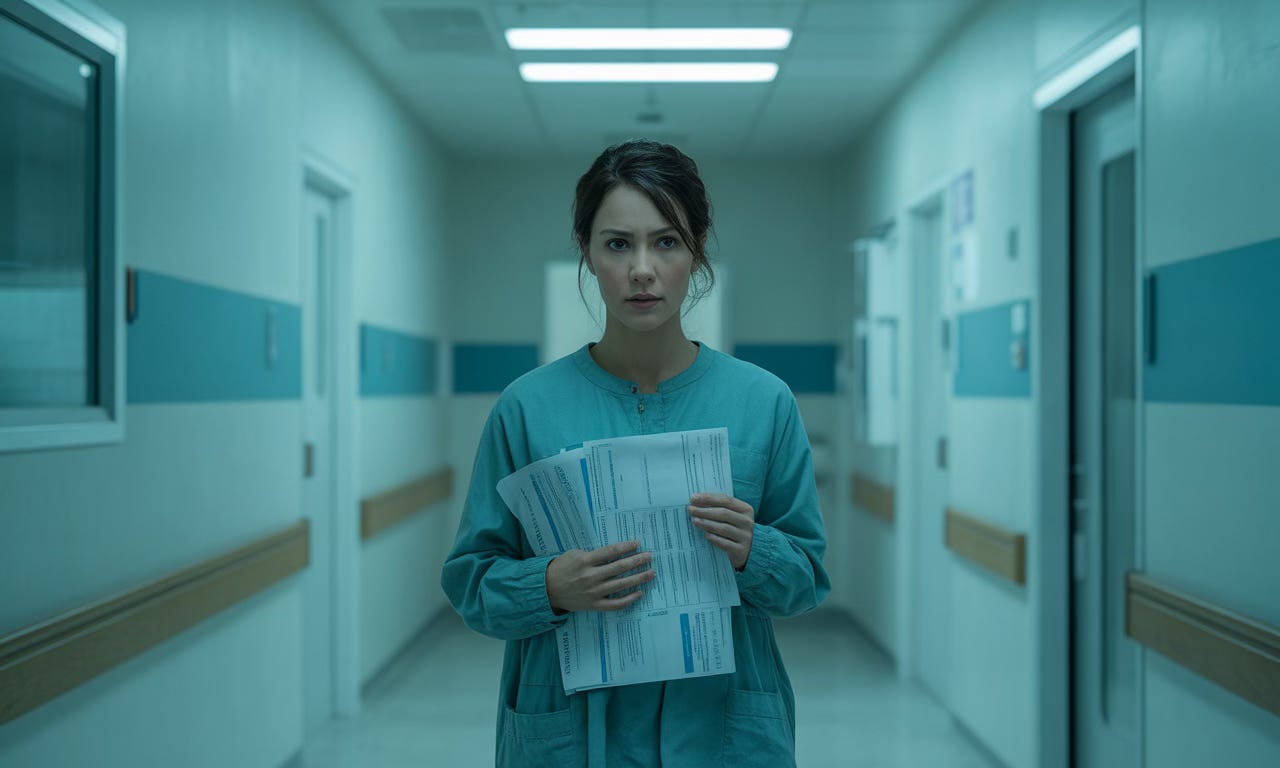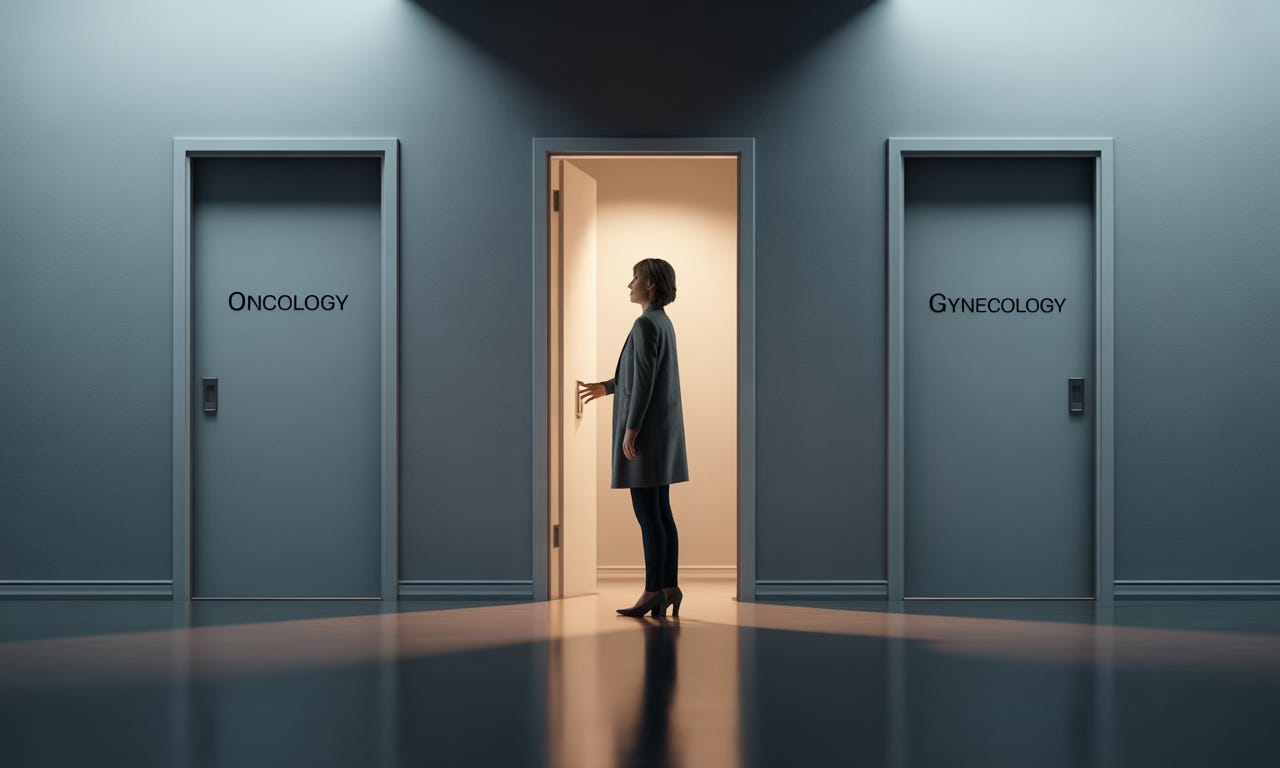The Survivorship Lie
What Your Doctor Isn’t Trained to Tell You
You finish your last treatment. Your oncologist shakes your hand and says, “You’re done. Be grateful you’re alive.”
You walk out into the parking lot and realize: No one told you what happens next.
The hot flashes wake you up six times a night. Sex hurts so much you’ve stopped trying. Your weight climbs despite eating less and moving more. When you mention brain fog at your follow-up, your oncologist says “talk to your gynecologist.” Your gynecologist says “I don’t feel comfortable—you’re a cancer patient, go back to your oncologist.” Your primary care doctor says they don’t know how these symptoms interact with your cancer drugs.
You’re bouncing between specialists. None of them can see the whole picture.
Dr. Mindy Goldman calls this being “lost in the middle.” She would know. As Chief Clinical Officer of MIDI Health and a former UCSF professor, she’s spent 25 years building the bridge between breast oncology and gynecology that shouldn’t need to exist—but does.
Her career shifted completely after her best friend was diagnosed with aggressive triple negative breast cancer at a young age. Too young for a mammogram. Dead within 18 months. Dr. Goldman helped care for her at home, then took time off because grief doesn’t follow a schedule.
When she returned to work, she joined the breast care center part-time. Doctors kept coming to her with questions: “This patient was thrown into menopause from chemo—what do we do?” “This person is bleeding on tamoxifen—how should we manage that?”
She went to look up the answers in the medical literature. There was almost nothing there.
Here’s what she discovered that should make you angry: 80% of OB-GYN residency programs in the United States have no standardized curriculum in menopause. Not just for cancer survivors—for any woman. We spend more than half our lives in perimenopause or menopause, and doctors aren’t trained to help us navigate it.
So what can you do right now?
First: Stop accepting “be grateful you’re alive” as medical advice.
“There are always, always things that can be done. Do not accept being told to just deal with the side effects even if you’re in active treatment.” Dr. Mindy Goldman
Second: Ask your oncologist for a referral to someone who specializes in survivorship care—not just general gynecology. If they don’t have one, search online and the major cancer centers have resources and may have Telehealth options.
The full episode reveals what treatments are actually safe for cancer survivors (including hormones), which new FDA-approved drugs target the exact neurons where hot flashes occur, and why the cardiovascular implications of menopause after cancer might be more dangerous than anyone told you.
What if the biggest risk to your survival isn’t cancer recurrence—but what no one’s monitoring at all?



